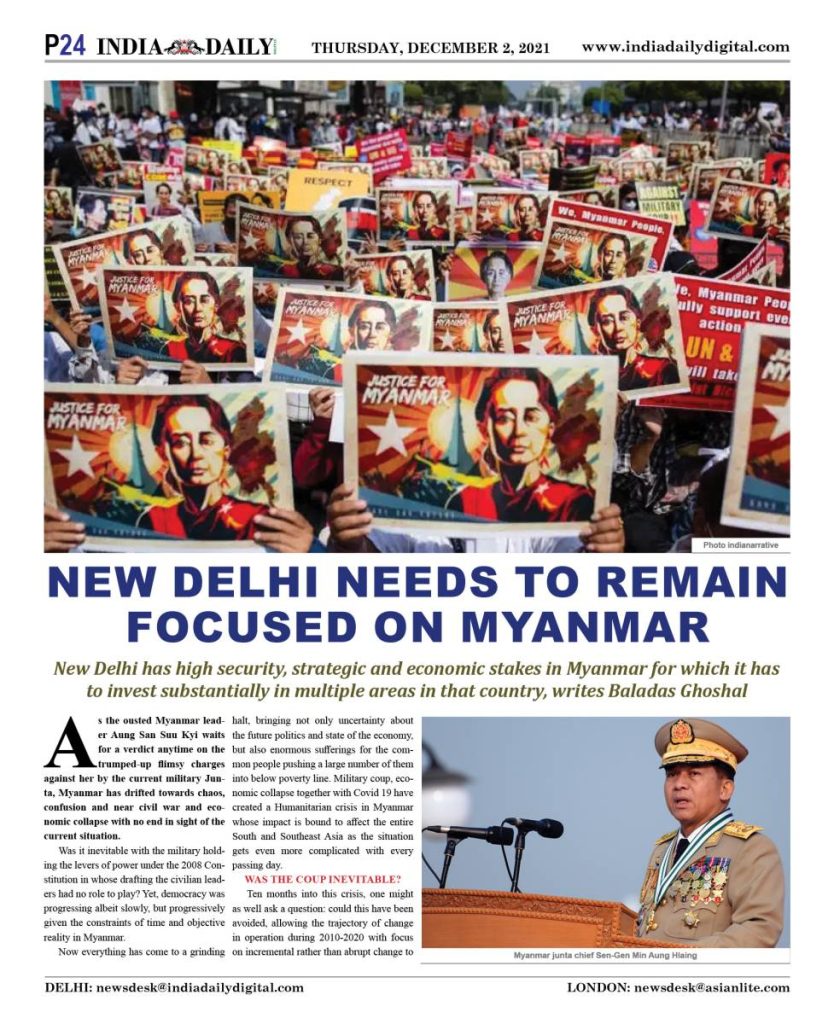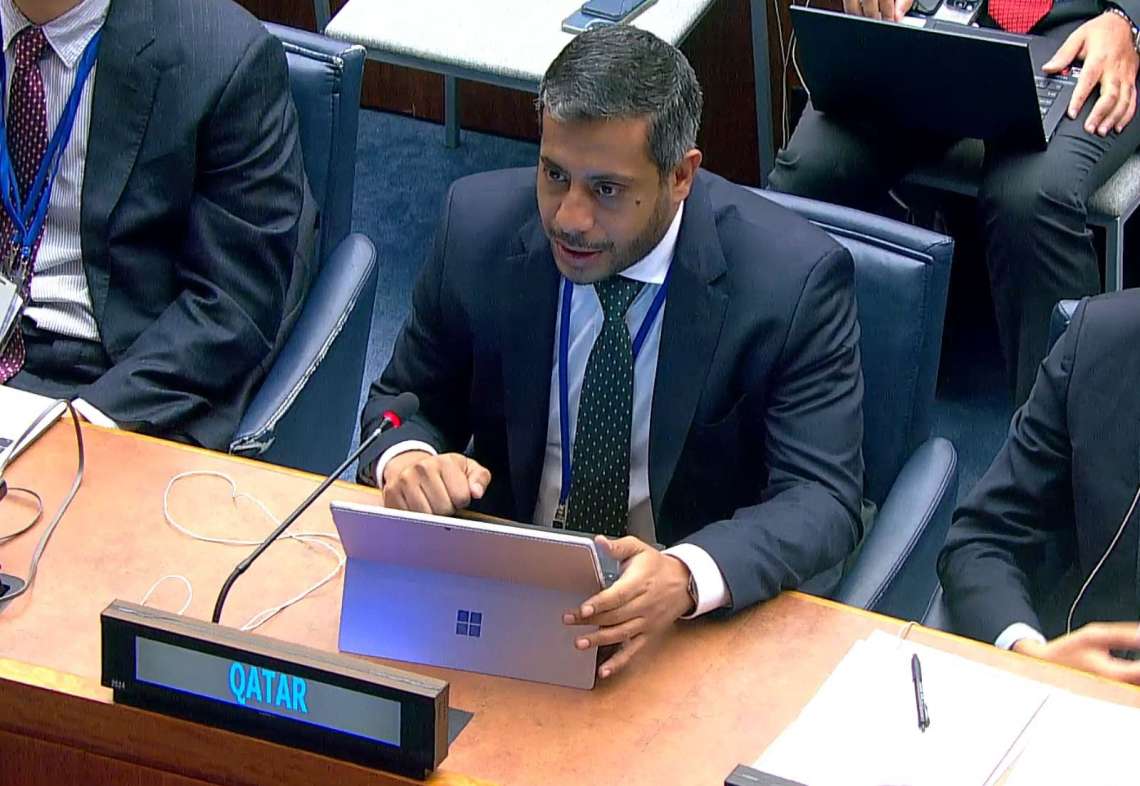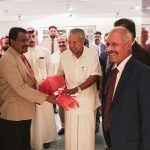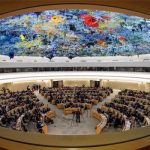New Delhi has high security, strategic and economic stakes in Myanmar for which it has to invest substantially in multiple areas in that country, writes Baladas Ghoshal
As the ousted Myanmar leader Aung San Suu Kyi waits for a verdict anytime on the trumped-up flimsy charges against her by the current military Junta, Myanmar has drifted towards chaos, confusion and near civil war and economic collapse with no end in sight of the current situation.
Was it inevitable with the military holding the levers of power under the 2008 Constitution in whose drafting the civilian leaders had no role to play? Yet, democracy was progressing albeit slowly, but progressively given the constraints of time and objective reality in Myanmar.
Now everything has come to a grinding halt, bringing not only uncertainty about the future politics and state of the economy, but also enormous sufferings for the common people pushing a large number of them into below poverty line. Military coup, economic collapse together with Covid 19 have created a Humanitarian crisis in Myanmar whose impact is bound to affect the entire South and Southeast Asia as the situation gets even more complicated with every passing day.
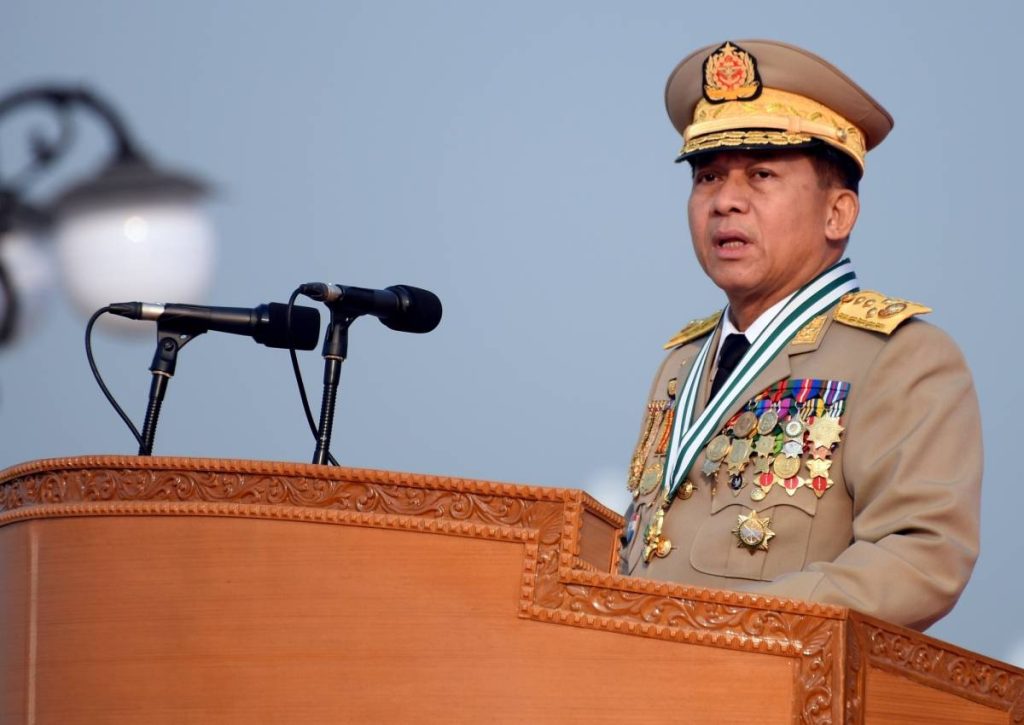
Was the Coup inevitable?
Ten months into this crisis, one might as well ask a question: could this have been avoided, allowing the trajectory of change in operation during 2010-2020 with focus on incremental rather than abrupt change to take its own course? The Military and the personal ambition of the Junta leader, Min Aung Hlaing is, undoubtedly, the main contributing factor in the unfolding drama in Myanmar, but other critical actors’ role in disturbing the delicate balance in military-civilian relations existing in the country, also cannot be ignored.
Suu Kyi’s impatience and the West’s Misplaced Priorities
For Suu Kyi, already in her late seventies and having not much time to remain in active politics together with the intense international pressure on her from the West to improve her fallen image from an icon of democracy to a perpetrator of ethnic cleansing of the Rohingyas, combined with her perceived destiny to go down in the history as someone who not only fought against military oppression and suffered incarceration but also completed the process of transformation from military authoritarianism to full-fledged democracy, the impatience was understandable.
Armed with a massive mandate in the November 2020 elections, she might have thought the time was propitious for her to attempt constitutional changes, thus provoking the military to stage the Coup.
The West’s hyper-activism on human rights on the Rohingya issue and their mission to transform Myanmar in their own image without investing sufficiently in the enabling environment of democracy together with their lack of understanding of the internal dynamics and the pattern of military-civilian power equation, was equally responsible for the turn of events in Myanmar.
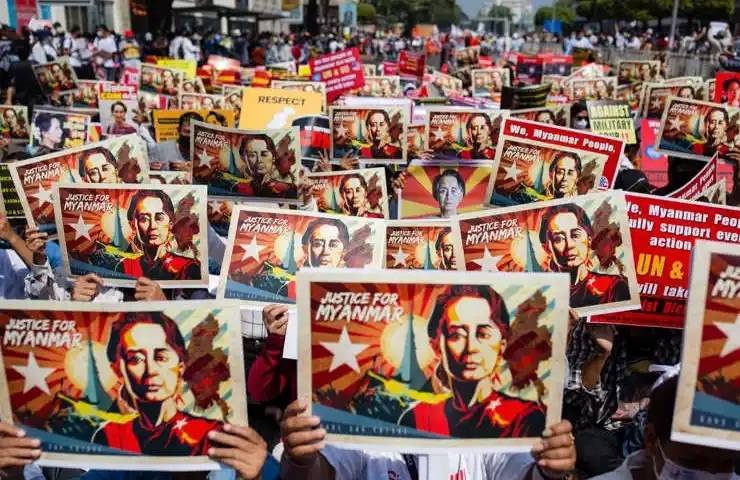
Constraints of Democratic Transformation
Restoration of democracy is not an easy process, and needs to be nurtured over a period of time, more so in a country wrecked by ethnic fragmentation and rebellion with external involvements, and where all civilian institutions were systematically emasculated and replaced with military organizations and institutions, and its economy controlled by an inefficient and corrupt military clique. To restore all that were lost, is a stupendous task for any government and required full cooperation of all the stakeholders in that process, including the international community and foreign investors to create the enabling environment for the same.
Economic development: Enabling environment for Democracy
That enabling environment lied in the rapid economic development of the country allowing everyone to be able to have a share of the cake so that the military could be asked to leave the political arena to the civilians and be content with its security role. Average GDP growth under Suu Kyi’s leadership had failed to reach even seven per cent when the need was for much higher rate for the challenging task of eradication of poverty of large sections of the population, and improving the quality of life for others.
To sustain experiment in democracy and development, the twin goal for which the people of Myanmar had fought and sacrificed under a crippling military dictatorship for more than five decades, success in the economic arena was the only weapon Suu Kyi could use in the absence of enabling political conditions.
Even while the investment environment in Myanmar had improved under her with the implementation of the new Company Law in 2018 and the Investment Law in 2017, Myanmar was not been able to attract much-needed large-scale foreign investment from foreign manufacturing companies in the West to create necessary jobs, some for economic reasons, but more for extra-economic factors like lack of progress on human rights issues. Although Myanmar’s democratization was expected to increase investment from Europe and the U.S., large amounts had come mainly from Asian countries such as China, Japan, and South Korea.
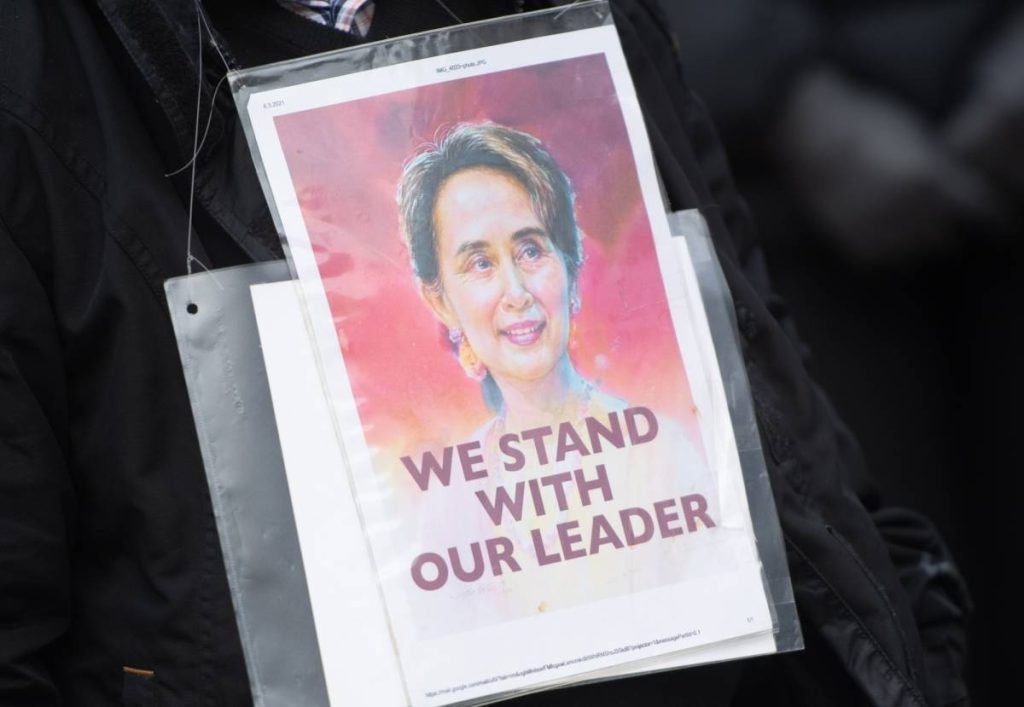
Future of Myanmar?
The current situation in Myanmar is in a stalemate, where neither the military, which has failed to establish control over the whole country, nor the Civil Disobedience Movement (CDM) or the democratic forces, which undoubtedly has used certain innovative ways to reach the grassroots level to broaden its base and more inclusive than Suu Kyi’s NLD, by getting the support of diverse ethic and minority groups but cannot match the military’s means of violence, pushing the country into a long-drawn out struggle whose outcome is unknown.
There is news about desertions in the military but their numbers are still quite insignificant. Unless there is a major split in the military, this stalemate will continue. To keep the country going, the Junta can still depend on its benefactor, Beijing, which finds a golden opportunity in the current situation to promote its China Myanmar Economic Corridor (CMEC) and the BRI.
New Delhi has high security, strategic and economic stakes in Myanmar for which it has to invest substantially in multiple areas in that country. More importantly, it has to deliver on its promises, more specifically in the connectivity sphere – Kaladan Multi-modal project and Trilateral Highways.
(Baladas Ghoshal is a former Professor and Chair in South & Southeast Asian Studies, Jawaharlal Nehru University, New Delhi. Views expressed are personal. The content is being carried under an arrangement with indianarrative.com)
